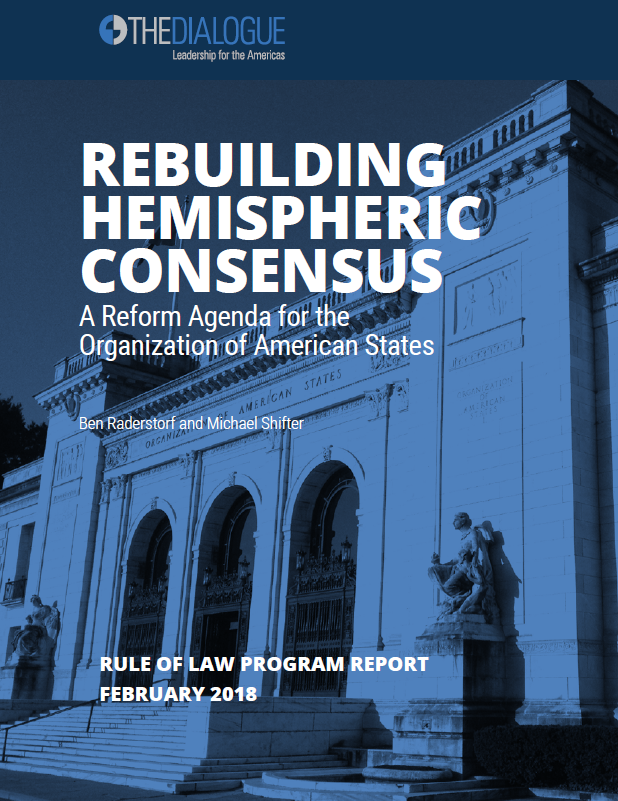Rebuilding Hemispheric Consensus
This post is also available in: Español

A Reform Agenda for the Organization of American States
This report from the Peter D. Bell Rule of Law Program analyzes the complex, interlocking challenges facing the world's oldest regional body—the Organization of American States. Based on two round-table meetings of experts on inter-American affairs and institutions, this report explores the "value-added" functions of the OAS and proposes a roadmap to reform and strengthening hemispheric consensus on democracy, human rights, and governance.
Key Findings:
- Complex challenges in a changing hemispheric environment. The OAS today faces five interlocking dilemmas:
- An asymmetry of ownership and perceptions of function.
- A flagging regional commitment to many of its central principles, especially the defense of democracy.
- Overdependence on the personal commitment of the Secretary General.
- A relatively low level of interlocution in a hemisphere dominated by presidential systems.
- Insufficient capital, financial and political, to accomplish any of its goals in full.
- Value-added functions of the OAS. The OAS is most effective as an umbrella forum for hemispheric affairs and north-south interlocution, a clearinghouse of ideas and best practices, and a defender of democracy and human rights.
- Roadmap to reform. Efforts to rejuvenate the organization should focus on strengthening the institutional mechanisms within the Secretariat to assess the quality of democracy, streamlining the mandate of the OAS to focus on core functions, increasing overall contributions and reforming the quota system, and push for better integration with the Summits of the Americas.



















